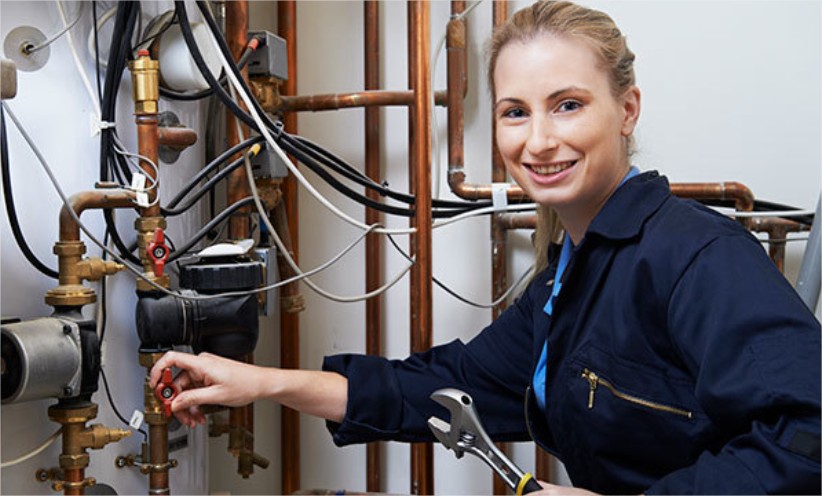In terms of maintaining a home, the plumbing system often takes a backseat in the minds of homeowners. Nonetheless, ignoring the intricate system of pipes and fixtures can lead to significant repairs down the line. Preventive plumbing is crucial for guaranteeing that your home stays a comfortable and safe environment. By dealing with minor issues before they escalate, you can save time, money, and anxiety.

In this article, we will discuss useful tips and strategies to help you prevent common plumbing problems. From understanding when to tackle a plumbing task yourself or when to call in the experts, to periodic maintenance checklists, we will provide a detailed guide to keeping your plumbing system in great condition. With plumbers near me , you can avoid unnecessary headaches and make sure your plumbing functions well year-round.
Common Water Concerns plus Fixes
A of the most plumbing problems homeowners face is a stopped drain. This can be caused by collection of fat, tresses, and soap scum over the years. To avoid clogged drains prior to they start, consider using drain guards and frequently cleaning your sinks and tubs. In case a blockage does occur, a pump or a blend of soda bicarbonate and vinegar can typically do the fix for light blockages. For stubborn clogs, it might be needed to use a plumbing snake or call a specialist.
Another frequent issue is low water flow, which can be annoying when trying to carry out routine tasks. The factors can vary, ranging from a accumulation of mineral deposits in pipes to drips. Homeowners should inspect aerators on faucets and shower heads and clean them if warranted. Should low water pressure continues, it could suggest a more critical problem in the pipes, and it could be wise to hire a plumber.
Finally, hidden leaks can cause serious damage if not addressed promptly. Indicators you may have a hidden leak include water stains on walls or overheads, an inexplicable bump in your water bill, or a damp smell in particular areas. To detect these problems early, homeowners should regularly evaluate their plumbing, including under sinks and around appliances. In case you suspect a leak, knowing how to shut off your water in an emergency can prevent further damage while you await expert help.
Plumbing Maintenance Advice
Regular maintenance is vital for staving off expensive plumbing issues. Homeowners should periodically check their plumbing for any indications of leaks, deterioration, or damage. Checking for damp spots on surfaces and ceilings can help identify concealed leaks early. In addition, make sure that all taps and shower heads are functioning properly, as drips can use up water and raise your expenses.
Another key maintenance step is to clear your drainage to avoid clogs before they can develop. Use drain screens to catch hair and gunk and conduct regular flushes with hot water or a mixture of baking soda and vinegar to keep the pipes clear. It's also wise to be cautious of what goes down your drains—refrain from flushing anything that can cause blockages.
Lastly, be sure to check your hot water system. Inspect the heat settings and examine the pressure relief valve annually to ensure it is operating correctly. Cleaning out the tank at a minimum of once a year helps remove scale buildup, which can impact performance and lifespan. By implementing these preventative steps, property owners can significantly minimize the risk of plumbing emergencies.
Crisis Plumbing Preparedness
When it comes to urgent plumbing situations, being prepared can make all the distinction. Start by knowing how to shut off your water supply swiftly. This easy action can prevent extensive water damage and save you from costly repairs. Familiarize yourself with the location of your main shut-off valve and practice turning it off. Additionally, consider labeling any valves for easy identification during an emergency.
Having a basic plumbing toolkit on hand is essential for homeowners. Equip yourself with items like a toilet auger, a pipe tool, and plumber's tape. These tools can help you address minor plumbing issues before they escalate. You should also stock up on emergency supplies like towels and buckets to manage leaks or spills efficiently. Keeping a list of trusted local plumbers readily available can expedite the process of getting professional help when necessary.
Lastly, take preventive steps to minimize emergency situations. Regular plumbing inspections can reveal vulnerabilities in your system, enabling you to address issues before they turn into emergencies. Understanding the common plumbing problems and how to fix them, along with seasonal maintenance practices, will further reduce your chances of encounters with plumbing disasters. Being proactive about your plumbing needs is the best way to ensure your home remains secure and functional.
